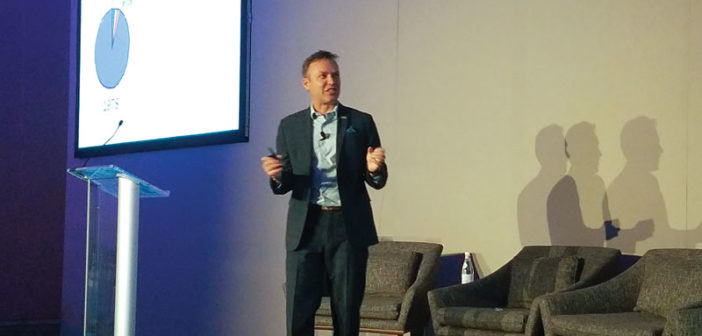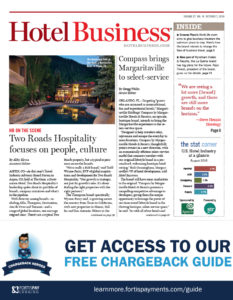DENVER—Asset managers gathered here at the Le Méridien Denver Downtown to discuss the latest issues facing the hospitality industry at the Hospitality Asset Managers Association (HAMA) Fall Conference.
Matthew R. Arrants, EVP with Pinnacle Advisory Group and a member of the HAMA board of directors, said, “This conference was a great success, from its Denver location—one of the faster growing hotel markets in the country with exciting new product, including the host hotel—to the caliber of our speakers.”
Steve Hennis, principal of Hotelogy, provided an overview and analysis of brand proliferation and which brands are most common in various major markets and segments. “In 1978, we had about 70 hotel brands, and that more than doubled in a 12-year period,” he said. “When you look at the large amount of brand growth that took place between 1978 and 2000, over 22 years, it averaged close to five brands a year… About 72 brands have been added in the last 12 years. That is about six brands a year. We are seeing a lot more growth, and there are still more brands on the horizon.”
Keynote speaker Chip Conley, founder of boutique hotel brand Joie de Vivre and former head of global hospitality and strategy for Airbnb, who still serves as an advisor for the home-sharing platform, provided his take on the company’s impact on the industry.
Conley said that hotels and the home-sharing industry can co-exist. “I have a horse in this race, so maybe I am wrong, but I do not think this is a zero-sum game,” he said. “This is not Uber and yellow cab—that is a zero-sum game. Hotels and home sharing is not.
“There is a lot of data…that showed very little evidence of Airbnb having a big effect on the hotel business,” he continued. “We do affect things during peak periods where there are pricing issues, [but]generally speaking, we don’t have an effect. There are a lot of reasons for that, but more than 30% of our guests—and that is pretty consistent—are people who said they would not have made the trip or they would have stayed with friends or family for free…if Airbnb did not exist. The Airbnb customer is not exactly matched up with the business traveler customer for the big hotel companies.”
Going into the conference, HAMA released a survey of its members at this year’s conference that they have a positive outlook for the near future—with more than 60% forecasting that seven to 18 months remain in the current RevPAR growth cycle.
The 2018 numbers for the survey match those of the previous year for the outlook.
“This year, another 20% said that they thought the cycle was going to last another 19-30 months, which is considerably more than last year, when it was under 10%,” said Arrants.
More than 55% of respondents said that their hotels are meeting or exceeding the 2018 year-to-date budget. For those not meeting or exceeding budget, nearly 50% saw an occupancy increase of 0-2% for the year so far, compared to approximately 15% seeing that increase in last year’s survey. Nearly 30% saw a 0-2% increase in ADR, compared to 5% last year.
In terms of 2018 full-year forecast versus 2018 budget, 40% of respondents reported a 0-2% increase in RevPAR, compared to 10% last year.
When it comes to the budgeting direction respondents are providing their hotels for 2019, on average, approximately 45% of respondents are saying a 0-2% increase. This compares to the more than 50% last year who forecast a 2-4% increase.
“They are a little more pessimistic about next year than they were last year,” said Arrants. “That could be because of the strong year, and there is always a degree of pessimism that there will be a market correction. People are getting nervous about how much longer it will last.”
When it comes to the concerns of asset managers, more than 90% view labor costs as a major problem. More than 80% worry about it negatively affecting their portfolios’ performance.
“The primary reason for this is that we are seeing it everywhere,” said Arrants. “You have the new Disney contract, and then you have the new union contracts in San Francisco and other major cities. A lot of us are involved in those negotiations, and/or planning or looking at it from a budgeting perspective for next year. While some of them are minimum wage increases, that rolls up because if you are raising your bottom people, we have to raise others along the way.”
The asset managers were also offered a selection of policies that hotel brands should pursue in the near term to more closely align their reservation policies with the interests of owners. Nearly 40% said that guests should be allowed to choose their own rooms for a fee. HB


